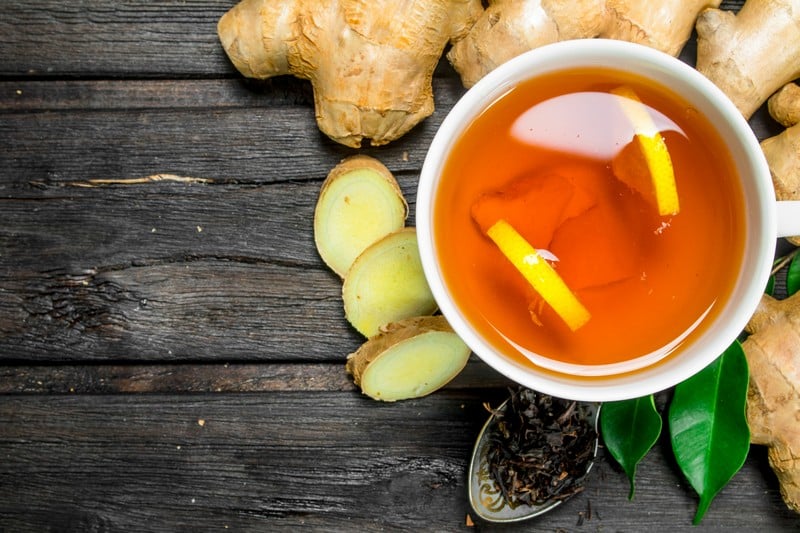Ginger

Like baking soda, ginger is known for being an ingredient that gives dishes a distinct flavor. But it’s also rich in antioxidant content and other chemicals that provide many medicinal properties. One example is the phenolic compounds it contains, which are believed to alleviate gastrointestinal irritation, contractions, and inflammation. This also means that it can potentially lower the risks of developing conditions like gastritis if not treating their symptoms effectively.
Ginger can be taken as an ingredient in cooking or as tea. However, ginger is also available in powdered, capsule, and oil forms. The critical thing to remember is that it should always be taken in moderation. Around three or four grams should be more than enough to provide relief without exacerbating the symptoms. This is because too much ginger can cause adverse reactions, such as abdominal discomfort, throat and mouth irritation, and arrhythmias.
In small doses, ginger can be a safe, natural, and effective treatment for various conditions. However, as with alternative therapies, more research is needed to determine their efficacy. But those who want to try ginger should consult a medical specialist to be safe and ensure it doesn’t interact with the medications you’re taking.










